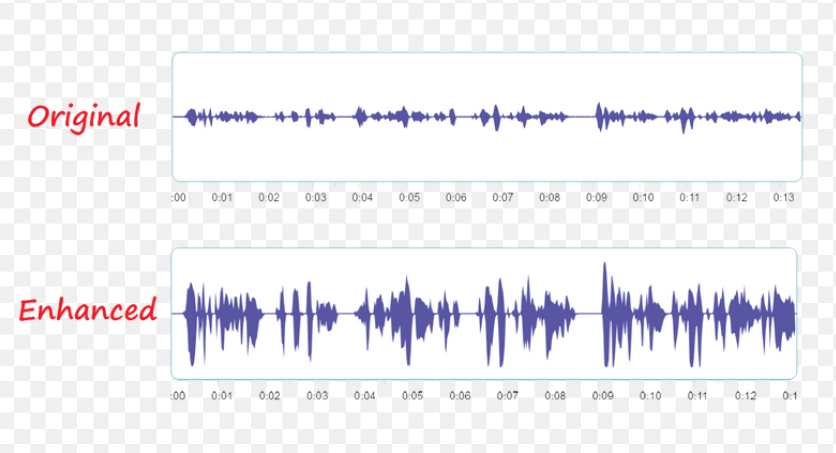Are you struggling to achieve studio-quality sound from your audio recordings? Struggling to remove unwanted noise or enhance clarity can be a frustrating bottleneck for creators.
What You'll Learn:
- The crucial role of AI music enhancers in modern audio production.
- Key market trends and the future trajectory of AI in sound.
- A curated list of the top premium and budget-friendly AI music enhancers.
- Practical advice on selecting the perfect AI tool for your needs.
Why AI Music Enhancer Matters in 2025
In the rapidly evolving landscape of audio creation, the demand for pristine sound quality has never been higher. Whether you're a musician, podcaster, filmmaker, or content creator, the ability to enhance and refine your audio is paramount to capturing your audience's attention and conveying your message effectively. AI music enhancers are no longer a luxury; they are becoming an indispensable tool in the modern audio toolkit.
Current Market Trends
The audio production market is witnessing a significant shift towards democratization of professional tools. AI music enhancers are at the forefront of this movement, offering sophisticated audio processing capabilities that were once exclusive to seasoned audio engineers with expensive hardware and software. We're seeing a surge in:
- Accessibility: Cloud-based and user-friendly AI tools are making advanced audio mastering and restoration accessible to individuals with minimal technical expertise.
- Automation: AI algorithms are automating complex tasks like noise reduction, equalization, and even mastering, significantly reducing production time.
- Personalization: AI is learning to adapt to specific audio genres and user preferences, offering more tailored sound enhancements.
- Integration: Many AI enhancers are being integrated into existing Digital Audio Workstations (DAWs) and audio editing software, creating a seamless workflow.
Future Outlook
The future of AI in music enhancement looks incredibly bright. We can expect:
- Even Smarter Algorithms: AI will become even more adept at understanding the nuances of sound, offering more precise and natural-sounding enhancements.
- Real-time Processing: Expect more AI tools that can process audio in real-time, ideal for live performances and streaming.
- Generative Audio Capabilities: AI may move beyond enhancement to actively contributing to or even generating musical elements.
- Cross-Platform Compatibility: Tools will likely become more versatile, working across various operating systems and devices with ease.
Top AI Music Enhancer Options
Choosing the right AI music enhancer can significantly impact your final product. Here's a breakdown of some of the leading solutions, categorized by their typical price points and feature sets.
Premium Solutions
These options often offer the most advanced features, highest fidelity, and broader customization for professional users.
- iZotope RX 10 Advanced: Widely considered the industry standard for audio repair and restoration. It boasts an impressive suite of modules for de-noising, de-reverb, de-click, de-hum, and spectral editing. Its AI-powered modules are exceptionally effective at identifying and removing unwanted audio artifacts without degrading the original signal.
- LANDR: Primarily known for its AI-powered automated mastering service, LANDR also offers tools for mixing and distribution. It analyzes your track and applies intelligent mastering processes to achieve a professional, radio-ready sound.
- Antares Auto-Tune Slice: While known for vocal tuning, Antares also offers AI-driven tools that can enhance instrumental performances, offering subtle pitch correction and sonic shaping.
Budget-Friendly Alternatives
For those on a tighter budget or just starting, these options provide excellent value and powerful AI capabilities.
- Acoustica Mixcraft Pro Studio: This comprehensive DAW includes AI-powered mixing and mastering assistants that can help beginners achieve polished results.
- Audacity (with plugins): While Audacity itself isn't an AI enhancer, its open-source nature allows for integration with various VST plugins, some of which leverage AI for noise reduction and spectral editing.
- Adobe Audition: Offers robust audio editing features, including AI-powered tools like automatic loudness matching and dialogue loudness normalization, which are crucial for podcasts and voiceovers.
How to Choose the Right AI Music Enhancer
Selecting the appropriate AI music enhancer depends on your specific needs, skill level, and budget. Here’s a framework to guide your decision.
Selection Criteria
Consider these key factors when evaluating AI music enhancement tools:
- Purpose: What specific problem are you trying to solve?
- Noise Reduction: Is your audio plagued by background hum, clicks, or hiss?
- Mastering: Do you need to make your mixed track sound louder, fuller, and more competitive?
- Vocal Enhancement: Are you looking to improve clarity, presence, or tuning for vocals?
- General Polish: Do you need a tool that can intelligently balance frequencies and dynamics?
- Ease of Use:
- Learning Curve: How much time are you willing to invest in learning the software?
- Automation vs. Control: Do you prefer a fully automated process or granular control over parameters?
- Features:
- Specific AI Modules: Does it offer specialized tools for de-reverb, de-plosive, spectral repair, etc.?
- Integration: Does it work as a standalone application, a plugin (VST, AU, AAX), or both?
- Sound Quality:
- Artifacts: Does the AI introduce unwanted digital artifacts or sound unnatural?
- Transparency: How well does it preserve the original character of the audio?
- Cost:
- One-time Purchase vs. Subscription: Which model fits your budget and usage frequency?
- Tiered Pricing: Are there different versions with varying feature sets?
Decision Framework
To make an informed decision, follow these steps:
- Define Your Needs: Clearly list the audio issues you want to address and your desired outcome.
- Research Top Contenders: Based on your needs, identify 2-3 AI enhancers that seem promising.
- Utilize Free Trials: Most premium software offers free trial periods. This is your chance to test them with your own audio files.
- Watch Tutorials and Reviews: See how others use the tools and what results they achieve. Pay attention to user interface demonstrations and sound quality comparisons.
- Consider Your Workflow: Ensure the chosen tool integrates smoothly with your existing setup (DAW, operating system).
- Compare Features and Pricing: Use comparison tables like the one above to weigh the pros and cons.
FAQ (Frequently Asked Questions)
Q: Can AI music enhancers truly replace a professional mastering engineer?
A: While AI mastering tools can achieve impressive results and provide a professional polish, they are generally best suited for situations where budget or accessibility is a concern, or for quick, automated mastering. A skilled human mastering engineer can offer a more nuanced understanding of artistic intent, genre conventions, and sonic subtleties that AI might miss. However, for many creators, AI offers a fantastic and accessible way to get close to professional results.
Q: What types of audio problems can AI music enhancers solve?
A: AI music enhancers are highly effective at solving a wide range of audio issues, including: * Background noise: Hiss, hum, fan noise, air conditioning. * Unwanted sounds: Clicks, pops, mouth noises, plosives. * Reverb and echo: Reducing unwanted room reflections. * Distortion: Repairing clipping or overloaded audio. * Muddiness or harshness: EQ and dynamic balancing. * Low volume: Increasing overall loudness to competitive levels.
Q: Are AI music enhancers difficult to use for beginners?
A: Many modern AI music enhancers are designed with user-friendliness in mind. Tools like LANDR or the AI assistants within DAWs like Acoustica Mixcraft are generally very intuitive. More specialized tools like iZotope RX might have a steeper learning curve due to their extensive feature set, but they often come with excellent tutorials and presets to get you started.
Q: Will using an AI music enhancer degrade the quality of my original audio?
A: Reputable AI music enhancers are designed to minimize or eliminate audio degradation. Advanced algorithms work intelligently to isolate and remove unwanted elements without significantly affecting the integrity of the desired audio. However, aggressive processing or using less sophisticated tools can sometimes lead to artifacts. It's always advisable to use these tools judiciously and listen critically.
Conclusion
AI music enhancers are revolutionizing audio production, making professional sound quality more accessible than ever. By understanding the current market trends, exploring the top premium and budget-friendly options, and carefully considering your specific needs, you can select the perfect tool to elevate your audio projects in 2025.
Ready to transform your sound? Explore the free trials of the AI music enhancers mentioned above and discover how they can enhance your creative workflow and the quality of your final output!








